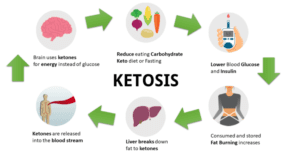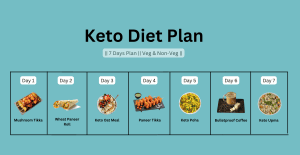Have you recently started with a low carb diet? Do you wish to know about the carbs in potatoes? Are you confused about whether potatoes are keto or not? Keep reading, for a detailed explanation about the number of carbs in potatoes.
Health Benefits of Potatoes
Opposite to what you may have heard in the past, potatoes do have some benefits. The three biggest health benefits of potatoes are:
They Improve Bone Health
Potatoes are a strong source of calcium, phosphorus, iron, magnesium, and zinc.
Nutritional values in one potato:
- Iron: 3.2 mg (18% daily value)
- Phosphorus: 209 mg (21% daily value)
- Magnesium: 83.7 mg (21% daily value)
- Zinc: 1.1 mg (7% daily value)
These are common to help improve and build bone strength and structure.
They Improve Blood Pressure
Another health benefit of potatoes is they can help widen blood vessels and therefore lower blood pressure. One potato contains 1,600 mg of potassium — that’s about 46% of your daily recommended intake. And, since potassium has the capacity to widen blood vessels, it can improve your blood pressure that way as well.
They Fight Inflammation
Potatoes are a strong source of choline. In fact, potatoes consist of about 57 mg of choline. Choline helps reduce inflammation as well as maintaining the structure of cell membranes, absorbing fats and helping early brain development.
Are Potatoes Keto?
This may hurt, but no, potatoes are not keto-friendly. This gluten-free staple goes with almost anything, but contains a high amount of carbs and starch in s single serving! There are quite a few carbs in potatoes. Potatoes rank more highly than white bread on the glycemic index — a tool that measures a food’s impact on blood sugar.
A boiled potato has a glycemic index of 78 while a slice of bread comes in at 75.
How many Carbs in Potatoes?
A single medium potato has 35 grams of net carbs, which is too high for a traditional keto diet that aims for 20-30 net carbs per day. And this doesn\’t even include the carb count of any toppings you add!
Are there any Low Carb potatoes?
Unfortunately, the carbs in potatoes are very high, and pretty similar, no matter what kind you have. The carbs in potatoes are pretty high to enjoy on a traditional keto diet. But don’t worry, we have some exciting substitutes for you to enjoy, while on keto.
What is a Keto Diet?
Carbohydrates are the body\’s preferred source of energy, but on a strict ketogenic diet, less than 5 percent of energy intake is from carbohydrates. The limitation of carbohydrates puts the body into a metabolic state called ketosis. Ketosis is when the body starts tearing down stored fat into molecules called ketone bodies to use for energy, in the absence of circulating blood sugar from food. Once the body reaches ketosis, most cells will use ketone bodies to generate energy until you start eating carbohydrates again.
Potato Substitutes for Low-Carb Diets
If you’re looking for an alternative to potatoes, there are some low carb vegetables that are packed with nutrients and offer a clean carbohydrate option.
- Cauliflower: Mashed cauliflower makes an excellent replacement for mashed potatoes. Cauliflower is enriched with antioxidants, helps fight inflammation, and could even prevent the growth of cancerous tumor cells.
- Celery root: Celery root makes a great substitute for french fries. Plus, a 100g serving consists of just 7 grams of net carbs.
- Daikon radish: Daikon is also a good source of vitamins A, C, E, and B6. It contains potassium, magnesium, calcium, and iron. If you slice it thinly, it makes a nice substitute for scalloped potatoes.
- Rutabaga: Rutabaga is perfect for people on a low-carb or ketogenic diet, containing only 5 grams of net carbs and 35 calories per 100 grams. Cut with a cheese grater, then fry in a skillet with a little olive oil for a great hash browns substitute.
- Turnips: Turnips are an amazing source of antioxidants and fiber, but those aren’t the only benefits they provide. Turnips are loaded with iron, calcium,vitamin C, and vitamin K. Like cauliflowers, they are a considerable replacement for mashed potatoes.
- Kohlrabi: Kohlrabi is full of nutrients and minerals such as copper, iron, and calcium, potassium, manganese, and is rich in vitamins including vitamins C, B, A, and K. It tastes greatly roasted, similar to breakfast potatoes.
If you are on a diet regime or simply want to prioritize healthy eating, all of the above options make excellent low-carb alternatives.
Recipes with Potato Substitutes:
If you’re wishing to eat potatoes, there’s a keto potato substitute for you. Depending on the preparations, these swaps might make you think you’re really eating potatoes on keto!
- Sautéed Radishes – Radishes take on an enticing flavor when cooked, and get a soft texture similar to potatoes. Visually, they even look like red potatoes.
- Jicama French Fries – Salty, crispy, and totally guilt-free! You can make chili cheese fries with keto chili on top, but they are great plain as well.
- Rutabaga French Fries – Make french fries with this veggie too, and the results are delicious. Dip them in sugar-free ketchup!
- Keto Mashed Potatoes – This creamy, delicious recipe makes the perfect side dish.
- Zucchini Chips – Get all the crisp of potato chips, without inflammatory oils and extra carbs.
- Keto Beef Stew – Celery root comes in place of potatoes. Even my kids couldn’t tell the difference!
- Keto Sweet Potato Casserole – The perfect substitute for sweet potatoes, without actually adding any, cauliflower being the secret ingredient.
- Cauliflower Potato Salad – This keto cauliflower salad swap wins everyone over!
- Loaded Cauliflower Casserole – All the similar flavor and comfort, without all the carbs in baked potatoes.
These keto cauliflower recipes are the most common low carb potato replacement and with good reason. When cooked, cauliflower has a soft texture and neutral taste, perfect for taking on flavors of things typically made with potatoes.
Carbs in Sweet Potatoes
While sweet potatoes are known as a great carb option, they are still too high-carb for keto. The alternatives mentioned will not spike your blood sugar and can be used in several keto recipes.
Other Foods to Avoid on Keto:
Conventional vegetables contain more digestible carbohydrates than fiber and should be limited to the ketogenic diet. These include corn, potatoes, sweet potatoes, and beets. High sugar fruits too should be restricted, which spike your blood sugar more quickly than berries and have more carbohydrates
Carb counts for high-sugar fruits:
- Banana (1 medium): 27 g total carbs, 24 g net carbs
- Raisins (1 oz. / 28 g): 22 g total carbs,21 g net carbs,
- Dates (2 large): 36 g total carbs, 32 g net carbs
- Mango (1 cup, sliced): 25 g total carbs, 22 g net carbs
- Pear (1 medium): 27 g total carbs,21 g net carbs
Carb counts for starchy vegetables:
- Corn (1 cup): 36 g total carbs, 32 g net carbs
- Potato (1 medium): 37 g total carbs, 33 g net carbs
- Sweet potato (1 medium): 24 g total carbs, 20 g net carbs
- Beets (1 cup, cooked): 14 g net carbs,17 g total carb
Conclusion
Concluding, there are lots of carbs in potatoes and they should be avoided on a keto diet. While they do contain various health benefits, the carb count is simply too high.
To maintain a healthy diet, choose a low-carb replacement to white potatoes, such as cauliflower, rutabaga, or turnip.
Get started with your Weight Loss Journey today and take a step towards a healthy lifestyle! Stay tuned for inspiring Weight Loss Journeys, and Delicious Recipes! Also, don’t forget to follow us on Instagram for the daily dose of Health, and Wellness content!









